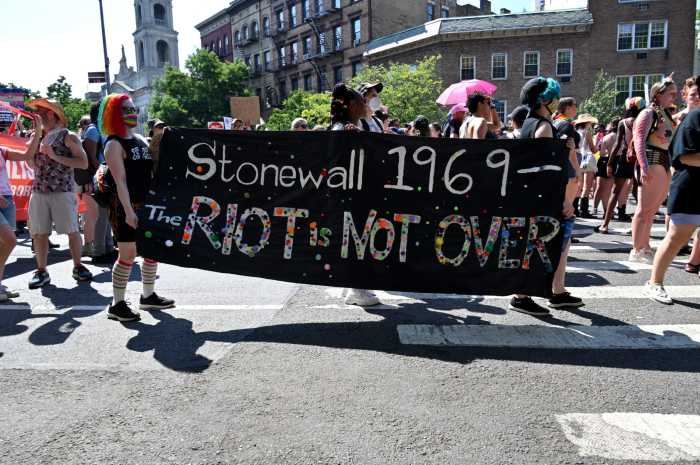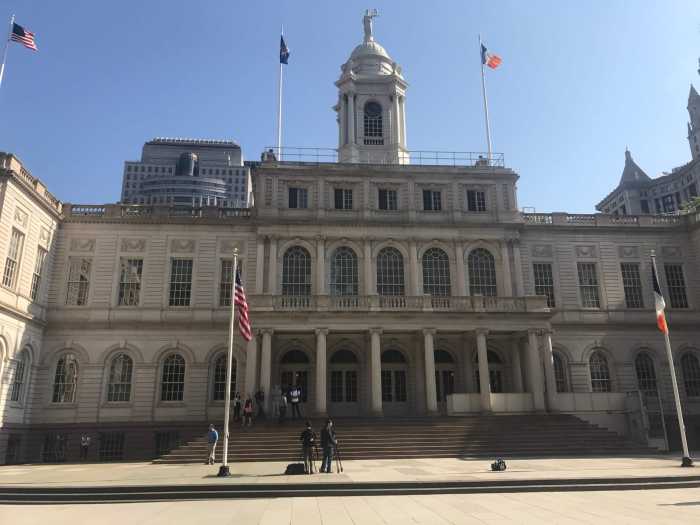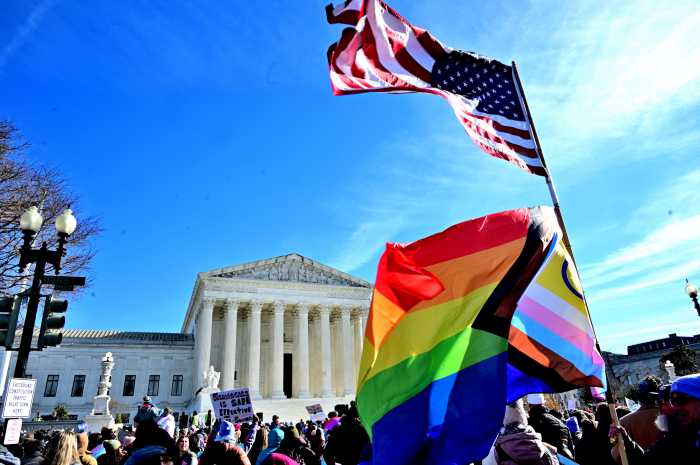The decision by leading administration officials to tell a group of LGBT advocates, during an April 11 White House meeting, that the president does not intend to move on a proposed executive order to bar contractors doing business with the federal government from discriminating on the basis of sexual orientation or gender identity has led to an outcry that Obama probably could have avoided as he heads into the final six months of his reelection drive.
The message, delivered in response to growing expectations the president would act before the election — perhaps as early as June — spawned widespread outrage on blogs that Obama was once again failing in his self-professed role as “fierce advocate” for the LGBT community. It has also prompted very tough talk from major insider groups, including the Human Rights Campaign, which endorsed the president’s reelection as early as last year.
But, according to Mara Keisling, who as executive director of the National Center for Transgender Equality was hard at work in the effort to make the executive order happen, many of those in the trenches with her understood that action was not likely until 2013. For her, the increasing anticipation that Obama was prepared to move more quickly was “a made-up time frame,” and she voiced confidence the effort remains on track. Still, she was befuddled by the administration’s handling of the issue and voiced no small amount of irritation about how it played out.
“The answer from the White House was not ‘no,’ it was ‘not now,’” Keisling emphasized, before adding, “If they didn’t want to do this, they just should not have said anything.”
It may be, as some have suggested, that the White House was simply following an approach that says friends should tell their friends the truth, and I certainly won’t advocate for less transparency from our elected officials, especially those who say they support us. But the White House claim that the more effective way of taking on employment discrimination is to double-down in our effort to enact the long-stalled Employment Non-Discrimination Act (ENDA) flies in the face of the president’s recent “We Can’t Wait” campaign, in which he has highlighted Republican House recalcitrance on critical legislative initiatives by exercising executive authority at his disposal to work around the hurdles.
Keisling, who made no bones about wanting to see action on the executive order sooner rather than later, and other critics of the president have it right when they say the inaction is caused by an overabundance of political caution. Despite the Obama administration’s claim that the pace of regulation has actually declined compared to that of the Bush administration, the president is clearly not comfortable handing businessman Mitt Romney ammunition for his narrative that Obama is insufficiently supportive of free enterprise. For the president’s detractors on the left, however, his unwillingness to act now is but the latest example of a constitutively timid leader.
In an op ed at the advocate.com, gay Democratic insider Andrew Tobias noted that a President Romney would be free to overturn any executive order issued by Obama now, so if we credit any possibility that the president could hurt his reelection prospects by moving now, the conclusion follows that he is actually enhancing the chances we will see a favorable outcome — whether by Obama acting on an order next year or by his being in place to sign ENDA should it be approved by Congress in his second term.
Tobias’ argument has a certain nifty appeal, but the notion that the LGBT community — perhaps alone among Democratic constituencies — should forgo all our demands until Obama is safely reelected is not particularly palatable. The president could have put off or finessed the administration’s position on access to contraceptives — there has certainly been political fallout there. He didn’t — and my bet is that he saw the upside in highlighting the Republicans’ hostility toward reproductive freedom that most American women hold dear.
It’s not at all a sure thing in my book that the politics of an executive order would work against the president. Many of the largest government contractors already bar anti-LGBT discrimination — the impact of such an order would be most significant among small enterprises handling government work — so it is not clear who in the business community would lead the charge against the administration. Nor is it obvious that defending the right of businesses who wish to profit from government largesse to discriminate is a slam-dunk on the campaign trail.
The bigger political risk for the president, it seems to me, is doing anything to dampen the enthusiasm among progressive constituencies for his reelection. Voting for Romney is no serious option for anyone concerned about LGBT rights. Unfortunately, for far too many voters, staying home is always an option. And — just as importantly — so too is the choice of not opening up your wallet to make a campaign contribution.
Still, Keisling was right on another point. Whether it’s new nondiscrimination provisions placed on housing market participants receiving HUD dollars, expected regulations on curbing prison rape, the administration walking away from the Defense of Marriage Act, or the discretion under immigration law it is using to ease pressures on binational couples, there is far too much going on under the current administration to place undue emphasis on the executive order question.
And, there’s one other thing to consider. In the 2009-2010 session of Congress, whether overtly or implicitly, our community acquiesced in prioritizing repeal of Don’t Ask, Don’t Tell over enactment of ENDA. Now, we demand immediate action by the administration to achieve much of the same goal through executive action. As one Capitol Hill staffer reminded me when the executive order story broke, our community needs to show up more often, more consistently, and in greater numbers if we expect to keep the ball rolling forward in Washington.


































